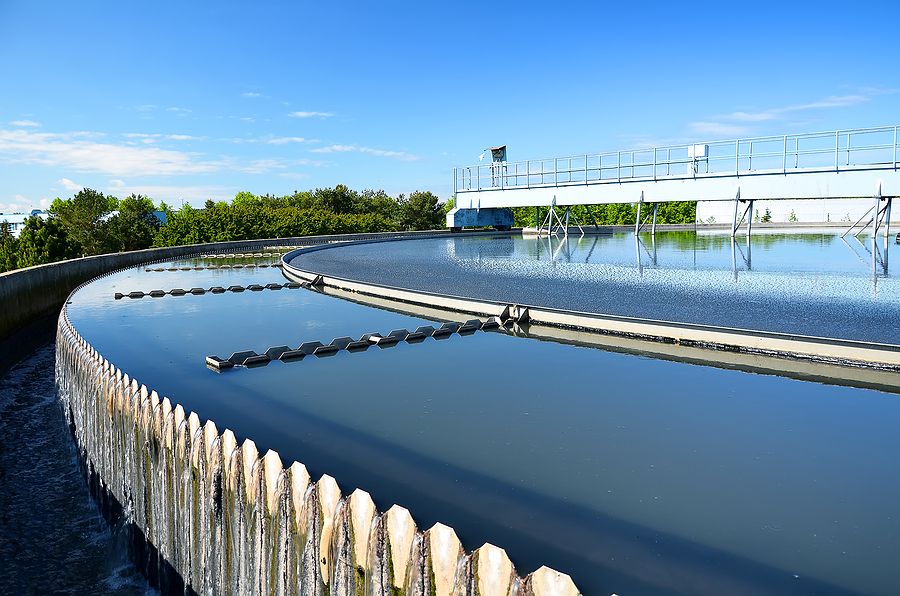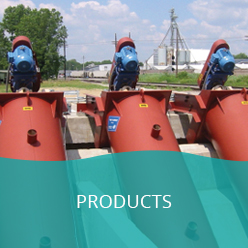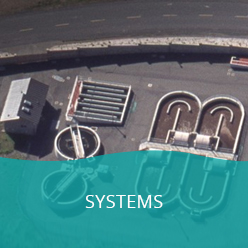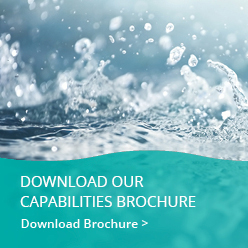Wastewater treatment systems are essential for their role in maintaining public health and environmental quality. The importance of wastewater treatment doesn’t ebb and flow based on the weather. Even during the harshest winter months, wastewater treatment facilities need to maintain their functionality. During winter, freezing temperatures, heavy snowfall, and icy conditions can present challenges to wastewater treatment systems and their daily operations.
Understanding the Impact of Winter Weather on Wastewater Treatment
Winter weather presents unique challenges to the wastewater treatment industry. These challenges can affect the operation of the physical infrastructure, as well as biological processes that are used for certain types of wastewater treatment.
For example, freezing pipes and equipment can become an issue in sub-zero temperatures. This can lead to broken equipment and mechanical failures as the risk of freezing increases. There are also increased energy demands required to keep wastewater treatment systems operating during freezing weather.
For wastewater treatment processes that rely on biological methods, winter weather can reduce the effectiveness. When temperatures drop, microbial activity slows down, significantly impacting the efficiency of the biological treatment process.
It isn’t just freezing temperatures that can interfere with wastewater treatment processes. As snow melts, it can lead to excessive inflow into sewer systems. Susceptible wastewater treatment facilities may find themselves overwhelmed to the point that they’re unable to effectively treat the overflow.
Winterization Strategies for Wastewater Treatment Systems
While winter weather can’t be avoided, there are steps wastewater treatment facilities can take to ensure smooth operations during the winter months. Here are a few examples of effective wastewater treatment winterization strategies.
Infrastructure Insulation: Pipes, pumps, and other outdoor equipment can be wrapped with insulation to help prevent freezing. In some cases, electric heating cables can also be used. Wastewater treatment facilities that are located in especially harsh climates can design their facilities to have their critical equipment sheltered by enclosed buildings.
Management of Biological Treatment Processes: Wastewater treatment facilities that use biological systems can equip their treatment tanks with heating systems to maintain optimal temperatures for microbial activity. Ensuring that tanks are covered during the winter can further prevent heat loss. Even with these measures, some facilities may need to modify their treatment processes during extreme winter weather.
Managing Overflow Infiltration: Regular maintenance and practicing effective stormwater management are smart strategies for minimizing the potential damage caused by winter overflow. Ensure that all sewer lines are in good working condition and implement a system to divert excess stormwater away from the wastewater system.
Being Prepared for Winter Weather Emergencies: While weather-related emergencies can happen any time of year, it’s important for treatment facilities to be prepared for potential winter emergencies. This included ensuring there is a working backup power system to maintain operations during power outages and making sure staff is fully trained on how to handle extreme weather events.
Innovations in Winter Wastewater Treatment
When looking at how wastewater treatment facilities effectively manage seasonal operations, it’s important to also look toward new innovations and how they are improving winterization processes for the industry.
As an example, automated monitoring systems can assess temperature, flow rate, and performance in real-time to more efficiently identify and remedy potential winter-related issues. Some facilities are also taking advantage of geothermal energy to heat biological treatment tanks and buildings. Geothermal energy is a sustainable source of energy that can be an effective cold-weather solution for facilities located in colder climates.
Environmental and Economic Considerations for Winter Wastewater Treatment
Wastewater treatment plants need to consider environmental and economic factors when choosing how to handle winter challenges.
Increased energy usage is a challenge for facilities during the winter months. Winterization strategies frequently demand additional energy usage, which can place a strain on the budget, as well as cut into a treatment facility’s sustainability goals. Today, more facilities are exploring how to utilize renewable energy sources to offset the increased energy demand during colder months.
Treatment plants also play a critical environmental role in ensuring untreated sewage from snow melt doesn’t contaminate local water sources. Treatment facilities need to have a plan in place to effectively divert snowmelt and treat it effectively before it has the chance to negatively impact the environment and local ecosystems.
Winterization strategies can be costly for wastewater treatment plants. By investing in technology and infrastructure that is winter weather-ready year round, they can help mitigate many extra costs. While there is a significant upfront investment, these are measures that can reduce expensive repairs, winterization methods, and environmental fines further down the road.
Preparing for a Changing Climate in Wastewater Treatment
Wastewater treatment facilities are just focused on managing winter weather operations today. They also need to be looking toward the future, including how climate change may affect the weather, and as a result, winter operating processes. In many regions, climate change is expected to cause shifts that intensify seasonal weather. For some, this will include colder temperatures, heavier snowfall, and longer winter seasons.
When considering how future operations may be affected by climate change, wastewater treatment plants are looking at how to upgrade their current infrastructure with modern, weather-resistant equipment. They’re also looking at how to design and implement systems that are capable of handling extreme weather conditions. With this, the industry witnesses broader global collaboration in developing effective winterization solutions.
Final Words
While winter weather challenges are a challenge for wastewater treatment systems, there are viable solutions being implemented across the industry. Careful planning, a commitment to sustainability, and innovative technologies are examples of how the industry is working to protect public health and the environment. As climate patterns continue to shift and change, the wastewater treatment industry is adapting to discover new solutions. At Lakeside Equipment, we’re here to be your trusted partner in wastewater management solutions for every season of the year.








